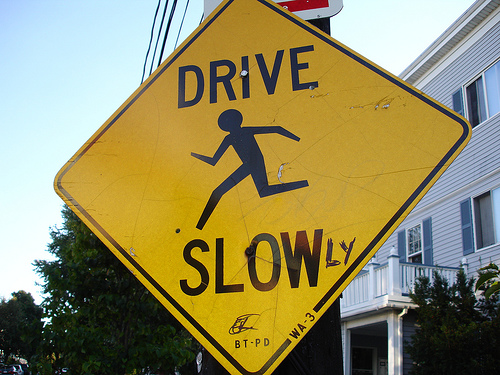
Image Credit:
via Jamison Koehler
Never before have I spent an entire class period talking about grammar, but I decided that this semester I would try it to see what my students thought about being taught grammar and being graded on grammar (the first of which I never do unless asked by a student for one-on-one help, the second which I only do if grammar severely impacts my ability to understand their papers). I had my students read three articles: Joseph Williams' "The Phenomenology of Error," (a selection from) David Foster Wallace's "Tense Present" a.k.a. "Authority and American Usage," and Christian Lander's Stuff White People Like #99: Grammar. If you've never read these articles, here's a brief description: Williams argues that there are levels of error--some we notice, some we don't, and that it all depends on who's doing the writing. He ends by saying that he deliberately made 100 mistakes in "The Phenomenology of Error," none of which I noticed, and only one of which was noticed by a student. The selection from DFW was his advice to students who speak Standard Black English (his phrasing, not AAVE) instead of Standard Written (White) English, telling them that they have to learn SWE to be successful even though it's racist and classist and the whole shebang. SWPL echoes DFW's views that grammar is racist, particularly with this claim: "It is in their blood not only to use perfect grammar but also to spend significant portions of time pointing out the errors of others," sarcastically asserting that the whiteness of the speaker determines grammar's perfection. We had a lot of fun with this combination. I had tacked DFW and SWPL on as an afterthought, but I'm glad I did. About a quarter of the students completely misread Williams as a grammar Nazi, but they really liked the other two selections. While many of my students thought that grammar was the most important thing to know about writing, most of them took pretty quickly to the ideas expressed in all three of these works--grammar is dependent on the speaker and the listener OR the writer and the reader. What works in one place will not work in another. My African-American students were quiet for the first portion of the class, but one finally spoke up about David Foster Wallace: She said that just because she spoke SBE didn't mean that she was so dumb that she would write a paper in SBE and hand it in. Thinking on this, I wonder (as always) if DFW was right to say what he did to his SBE students, but for different reasons than before--he may have very much oversimplified the problem. Lastly, the combination of all three articles showed them different styles of writing about the same topic, which was great.

